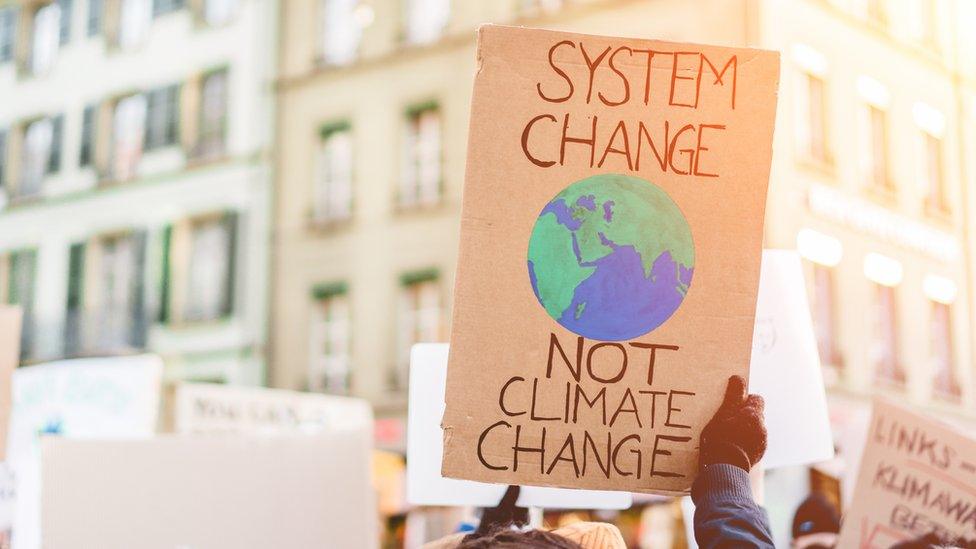Climate change: Lancet Countdown report says action is needed now
- Published
- comments

Climate change will affect the health of people throughout their lives unless something is done now to limit temperature rises.
That's according to the 2019 Lancet Countdown on Health and Climate Change report.
The report, put together by doctors and researchers, looks at how the health of future generations will be affected if action is not taken on climate change now.
The report looks at two different outcomes. The first is what would happen if we carry on as usual with no changes.
The second is how the future will look if action is taken to limit the global average temperature rise to "well below 2ÂşC".
2ÂşC is believed to be the critical rise in temperature that will have a huge impact on our planet.
'The future doesn't have to look this way'
The kids tackling climate change through protest
In the first option, if no action is taken, experts warn of a shortage of crops like maize, rice and soybean because of rising temperatures. They say this could lead to malnutrition across large parts of the world.
Increasing temperatures and extreme rainfall could also lead to disease, spread by floodwater and mosquitoes.
The impact of air pollution on our health, which is already "dangerously high", would get worse.
The report recommends that factories burning coal, which releases carbon dioxide into the air, should close to help prevent climate change
The report also warns that there would be even more extreme weather events like heatwaves and stronger storms.
But it goes on to say "the future doesn't have to look this way".
The other option for our planet
If the other path is taken and people act on climate change, so that the global average temperature doesn't rise by 2ÂşC, life on earth would be a lot better.
The report imagines a future where the use of coal is stopped as solar and wind energy and other renewable energy sources are used - resulting in cleaner air.
[With net zero] you have cleaner air, healthier diets, more liveable cities
The second route would also mean an end to petrol cars - as cycleways and green spaces make cities cleaner, healthier places to live.
The report says by limiting warming to well below 2ÂşC someone born today would grow up in a world which reaches net-zero emissions by their 31st birthday.
"By the time you reach net zero, you have cleaner air, healthier diets, more liveable cities, you have stronger, more resilient health systems," says Nicholas Watts, a medical doctor at University College London and executive director of The Lancet Countdown.
What needs to be done?
The Lancet Countdown authors call for bold action to prevent the health impact of climate change in four main areas:
1. Stopping the use of coal.
2. Richer countries putting more money in to help poorer countries so they can help stop climate change too.
3. Increasing and improving ways to encourage people to walk and cycle - such as safe cycle lanes and cycle hire schemes across the country.
4. Putting more money into health systems so that health services can cope with the number of patients.
Climate change explained in 90 seconds
Co-author Dr Stella Hartinger from Cayetano Heredia University, Peru said:
"We must listen to the millions of young people who have led the wave of school strikes for urgent action. It will take the work of 7.5 billion people currently alive to ensure that the health of a child born today isn't defined by a changing climate."
- Published20 January 2020
- Published17 July 2019
- Published23 September 2019
